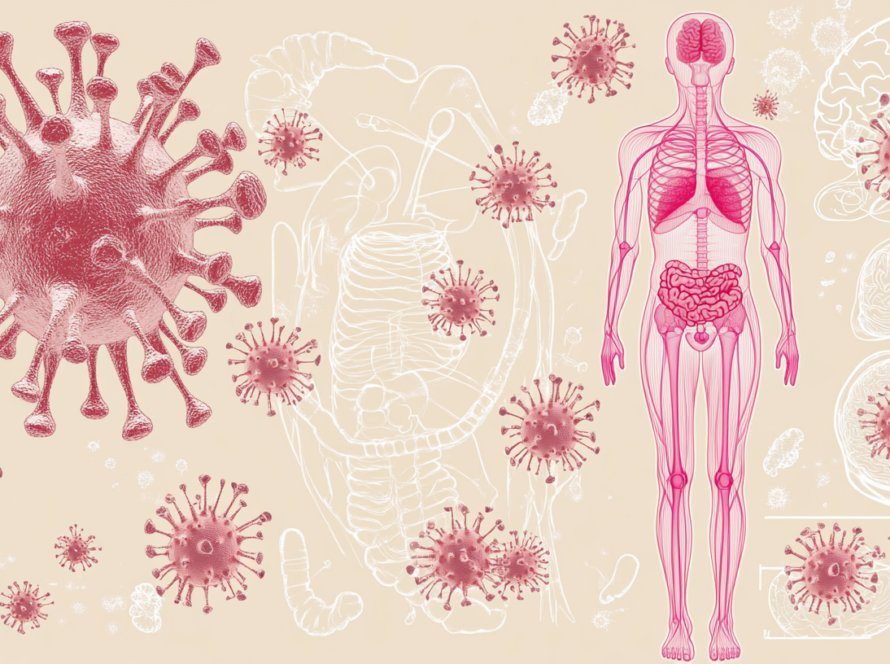Key Takeaways
- AI enhances holistic health practices but doesn’t replace human intuition
- Personalized care remains crucial in the age of algorithmic health advice
- Ethical considerations are paramount when integrating AI into holistic health
- The future of holistic health lies in a harmonious blend of technology and human expertise
The Rise of AI in Holistic Health
Artificial intelligence (AI) has emerged as a powerful tool in holistic health. This integration of technology into wellness practices presents both exciting opportunities and complex challenges. The key question we face is: How can we harness the power of AI while preserving the essential human elements of holistic care?
The Promise of AI in Holistic Health
AI’s potential in holistic health is vast. From predictive analytics that can forecast health trends to personalized wellness plans based on individual data, AI offers unprecedented insights into our well-being.
The Irreplaceable Human Touch
While AI excels in data analysis and pattern recognition, it lacks the nuanced understanding and empathy that human practitioners bring to holistic health. The art of healing often transcends measurable data points, relying on intuition, experience, and the profound connection between practitioner and patient.
Dr. Rachel Naomi Remen, a pioneer in the mind-body holistic health movement, emphasizes,
“The most powerful tool in medicine is the human relationship.”
This sentiment underscores the importance of maintaining human involvement in the face of technological advancement.
Striking the Balance: A Hybrid Approach
The future of holistic health lies not in choosing between AI and human expertise but in finding a synergistic balance between the two. This hybrid approach leverages the strengths of both to provide comprehensive, personalized care.
AI as a Complement, Not a Replacement
AI should be viewed as a tool to augment human capabilities, rather than replace them. For instance, AI can process vast amounts of health data to identify potential issues, while human practitioners can interpret these findings within the context of the individual’s unique circumstances.
Personalization: The Human-AI Collaboration
One of the most promising areas of AI in holistic health is its ability to offer highly personalized recommendations. By analyzing data from wearables, genetic tests, and lifestyle factors, AI can create tailored wellness plans. However, the human touch remains crucial in adapting these plans to individual needs and preferences.
Ethical Considerations in AI-Driven Holistic Health
As we integrate AI into holistic health practices, it’s crucial to address the ethical implications that arise. These considerations are not just philosophical debates but have real-world impacts on patient care and trust.
Data Privacy and Security
The use of AI in health practices often involves collecting and analyzing sensitive personal data. Ensuring the privacy and security of this information is paramount.
Implementing robust data protection measures and being transparent about data usage are essential steps in building trust with patients. This includes clear consent processes and giving individuals control over their data.
Addressing Biases in AI Algorithms
AI algorithms are only as unbiased as the data they’re trained on. In holistic health, where cultural and individual differences play a significant role, it’s crucial to ensure that AI systems don’t perpetuate existing biases or create new ones.
Holistic health practitioners must be aware of these potential biases and work to mitigate them.
The Future of Holistic Health: Human-AI Synergy
As we look to the future, the integration of AI in holistic health practices promises to unlock new possibilities for wellness and healing. However, this future is not about AI taking over but rather about creating a harmonious relationship between technology and human expertise.
Continuous Learning and Adaptation
Both AI systems and human practitioners must engage in continuous learning to stay effective. AI models can be updated with new research and data, while human practitioners can learn to better interpret and apply AI-generated insights.
The concept of “augmented intelligence” rather than artificial intelligence is gaining traction. This approach focuses on AI enhancing human intelligence rather than replacing it, allowing for a more integrated and effective healthcare system.
Empowering Patients Through Technology
AI-driven tools have the potential to empower patients in their health journeys. From personalized health tracking apps to AI-powered health coaches, technology can provide individuals with the information and motivation they need to take an active role in their wellness.
“The goal of AI in healthcare should be to empower both practitioners and patients, creating a more informed and engaged approach to health.” – Dr. Atul Gawande, Surgeon and Public Health Researcher
Practical Steps for Integrating AI in Holistic Health Practices
- Educate and Train: Invest in education for both practitioners and patients on the benefits and limitations of AI in holistic health.
- Start Small: Begin with pilot programs to integrate AI tools, allowing for adjustments and learning.
- Prioritize Transparency: Be clear about how AI is being used and what role it plays in patient care.
- Maintain the Human Connection: Ensure that AI enhances rather than replaces meaningful human interactions in healthcare.
- Regular Ethical Reviews: Conduct ongoing assessments of AI systems to address potential biases or ethical concerns.
- Collaborate Across Disciplines: Foster partnerships between technology experts, healthcare professionals, and ethicists to guide AI implementation.
Conclusion
The integration of AI into holistic health practices represents a significant shift in how we approach wellness and healing. While AI offers powerful tools for data analysis, personalization, and prediction, it’s clear that the human element remains irreplaceable in holistic care.
The future of holistic health lies in striking a balance between technological innovation and human intuition. By thoughtfully integrating AI while preserving the essential human touch, we can create a more comprehensive, personalized, and effective approach to health and wellness.
As we move forward, it’s crucial to remain mindful of the ethical implications of AI in healthcare and to continuously strive for a system that empowers both practitioners and patients. The goal is not to replace human expertise with algorithms but to create a synergy that elevates the practice of holistic health to new heights.
In this evolving landscape, the development of AI tools that harness the power of technology while staying true to the principles of holistic health will be crucial. The focus should be on elevating consciousness and promoting overall well-being, paving the way for a future where technology and human wisdom work in harmony to support our health journey.


